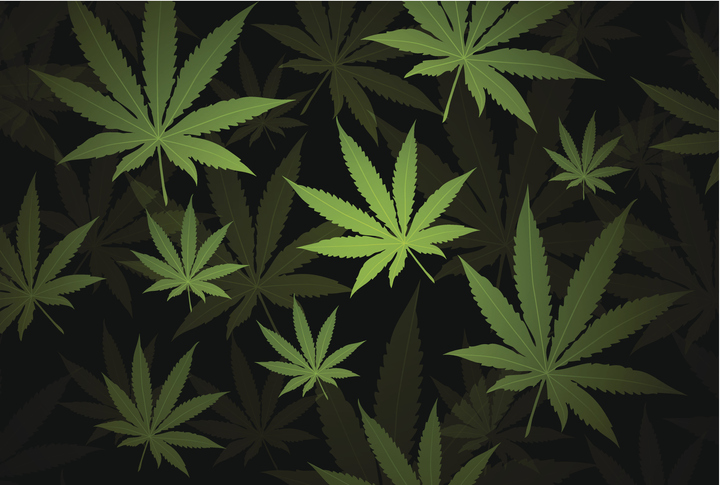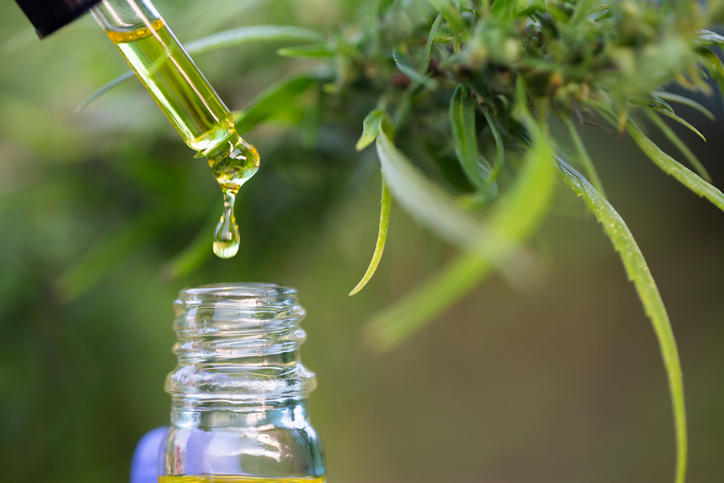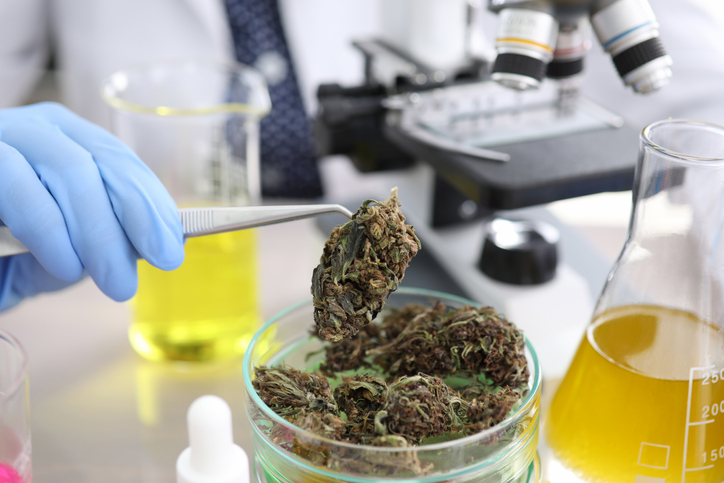Treatments
What is THC?

Tetrahydrocannabinol, or THC, is one of the natural compounds found in cannabis, otherwise known as marijuana. THC is the psychoactive compound that creates the “high” associated with cannabis use. It interacts with the body’s cannabinoid receptors. This interaction leads to the release of neurotransmitters, including large amounts of dopamine. As a result, it can change mood, behavior, and how pain is experienced.
Synthetic forms of THC are also used to treat a variety of conditions. Dronabinol is an FDA approved, synthetic version of THC that treats the nausea and vomiting associated with chemotherapy and anorexia resulting from HIV/AIDS. Nabilone is also a synthetic form of THC that is approved to treat chemotherapy-induced nausea and vomiting.
Legality
In the United States, cannabis, or THC, is considered a Schedule I drug. It is only approved by the FDA as a treatment for two forms of epilepsy. Several states have approved the use of medicinal THC, and some states have legalized the use of recreational cannabis. The legality is dependent upon the state.
In Canada, the use of medical THC was approved in 2001 and recreational use became legal in 2018. The rules regarding cannabis and THC, including possession, consumption, and storage limits, are regulated by the Cannabis Act.
How is THC taken?
Nabilone is available as a capsule, while dronabinol is available as a capsule or an injectable solution. THC can be inhaled by smoking cannabis. Other forms of THC include vapor, topical, tincture and oil, and edibles.
Side effects and risks
The use of THC can pose numerous adverse effects. They include, but are not limited to, the following:
- Hallucinations
- Paranoia
- Dysphoria
- Sedation
- Confusion
- Dry mouth
- Headache
- Euphoria
- Hypotension
- Seizures or seizure-like activity
There is no known toxic dose of THC, although this does not deem it safe for everyone. Risks include, but are not limited to, the following:
- Potential harm to unborn children
- Brain impairment
- Cannabis use disorder
- Interactions with other medications and alcohol
- Being laced with other substances if obtained illegally
- Mental health complications
- Contamination
- Lung issues
- Heart problems
Benefits
THC interacts with the body’s cannabinoid receptors, which leads to the release of dopamine. This “feel good” chemical is responsible for the euphoric feelings associated with cannabis. THC also affects neurons in the brain that are related to appetite. THC can help reduce nausea, making it beneficial for individuals undergoing chemotherapy treatment for cancer. The U.S. Food and Drug Administration has approved medications containing THC to treat nausea and improve appetite.
Off-label, it has been investigated in its use to treat the following:
- Obstructive sleep apnea
- Fibromyalgia
- Chronic neuropathic pain
Additional source: U.S. News & World Report


















